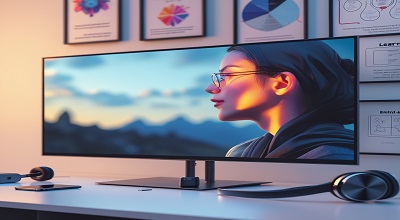Educational Videos and Documentaries
Educational Videos and Documentaries have become powerful tools for learning. They provide engaging, visual, and interactive content that enhances comprehension and retention. From classrooms to online learning platforms, these resources cater to diverse learning styles and make complex topics easier to understand.
This comprehensive guide explores the latest educational videos and documentaries, their benefits, and examples across various subjects. Whether you’re a teacher, student, or lifelong learner, this article will help you discover valuable resources to expand your knowledge.
The Importance of Educational Videos and Documentaries
Educational videos and documentaries offer numerous benefits:
- Visual Learning: Helps visual learners grasp concepts better.
- Engagement: Makes learning interactive and fun.
- Accessibility: Available anytime, anywhere.
- Real-World Applications: Documentaries provide real-life examples and case studies.
- Multisensory Learning: Combines audio, visuals, and text for better retention.
Types of Educational Videos
A. Explainer Videos
Short, concise videos that break down complex topics.
Example: Kurzgesagt – In a Nutshell (YouTube) explains science and philosophy engagingly.
B. Animated Educational Videos
Uses animation to simplify abstract concepts.
Example: TED-Ed creates animated lessons on various subjects.
C. Lecture Recordings
Recorded classroom lectures for remote learning.
Example: MIT OpenCourseWare provides free lecture videos.
D. Interactive Videos
Allows learners to engage with quizzes and branching scenarios.
Example: H5P enables interactive video learning.
Best Platforms for Educational Videos
A. YouTube EDU
Hosts thousands of free educational channels like CrashCourse and Vsauce.
B. Khan Academy
Offers structured video lessons on math, science, and humanities.
C. TED-Ed
Features short, animated lessons by educators.
D. Coursera & edX
Provide university-level video lectures from top institutions.
E. National Geographic
High-quality documentaries on nature, history, and exploration.
Latest Educational Documentaries (2024-2025)
A. Science & Technology
- “The Future of AI” (PBS Nova) – Explores advancements in artificial intelligence.
- “Mission Interplanetary” (Discovery Channel) – Covers space exploration missions.
B. History & Culture
- “Ancient Civilizations Unearthed” (Netflix) – Examines archaeological discoveries.
- “The Hidden History of Women in STEM” (BBC) – Highlights female scientists.
C. Environment & Sustainability
- “Planet Earth III” (BBC) – Latest installment of the iconic nature series.
- “Chasing Carbon Zero” (PBS) – Investigates climate change solutions.
D. Health & Medicine
- “The Truth About Vaccines” (National Geographic) – Debunks myths about vaccines.
- “Breakthrough: The Alzheimer’s Puzzle” (CNN) – Covers medical research on dementia.
How to Use Educational Videos Effectively in Learning?
- Preview Content: Watch beforehand to align with lesson objectives.
- Pause for Discussion: Encourage student engagement with questions.
- Supplement with Activities: Use quizzes or projects based on videos.
- Encourage Note-Taking: Helps reinforce learning.
Future Trends in Educational Videos
- AI-Personalized Learning: Videos tailored to individual learning styles.
- Virtual Reality (VR) Integration: Immersive learning experiences.
- Gamification: Adding game elements to educational videos.
- Short-Form Learning: Bite-sized videos for microlearning.
FAQs
Q1: Where can I find free educational videos?
A: Platforms like YouTube EDU, Khan Academy, and TED-Ed offer free high-quality videos.
Q2: How do documentaries help in education?
A: They provide real-world context, making subjects more relatable and engaging.
Q3: Are animated videos effective for learning?
A: Yes, they simplify complex topics and cater to visual learners.
Q4: Can educational videos replace traditional teaching?
A: They are best used as supplements, not replacements, for interactive learning.
Q5: What are the best science documentaries in 2025?
A: “The Future of AI” (PBS Nova) and “Mission Interplanetary” (Discovery) are highly recommended.
Conclusion
Educational videos and documentaries are transforming how we learn by making education more accessible, engaging, and effective. With the latest advancements in technology, these resources will continue to evolve, offering even more immersive and personalized learning experiences.
Free Download Link: Hill Climb Racing APK
